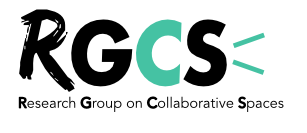1. DESCRIPTION
New ways of working and organizing work and life obviously transform and disrupt the time and space of our experiences. Boundaries between private and professional lives are blurred. Most workers are involved today in multiple activities and multiple temporalities, more or less conflicting with each other. Openness, fluidity and playfulness, as deep calls from managers, also change the time and space of work, consumption and life activities. In parallel, our world is experiencing radical transformations and expectations of transformations, ranging from climate change, planetary limits, geopolitical crisis (e.g. war or new financial disruptions) and the loss of meaning at work. Capitalism at large is accelerating the rhythms of its promises and novelties. Even its answers to our crisis are commodified and wrapped into its continuous processes of unveiling. These apocalypses also modify our relationships with past, present and future times, but also places, sites and spaces at stake with them. New imaginary of history and futures emerge. In the context of this SG, we want to explore the time-space of new ways of organizing in relationship with these grand challenges. We are particularly interested in understating jointly time and space, actuality and sites, events and emplacements, happening and spatium. Both methodologies, philosophies (e.g. of Deleuze, Bergson, Stewart, Braidotti, Seamon, Whitehead, Arendt…) and theories will be part of our discussions.
Three lines of inquiryaxes will structure further the SG:
- Axe 1: Time-space of multiple activities: our new world of platforms and digital management;
- Axe 2: Our apocalyptic capitalism: from the closer horizon of an end of the world to the description of capitalism as a process of revelation and unveiling;
- Axe 3: Renewing our theories of work and management: time-space dimensions and paradoxes
2. POSSIBLE COLLABORATIONS
Several collaborations could be included into the life of this SG, with the Organizations, Artifact & Practices (OAP) workshop, the Dauphine Philosophy Workshop (DPW) or EGOS (where a new Standing Group co-convened by François-Xavier de Vaujany is being submitted).
Collaborations with practitioners, consultants, activists, researchers and artists would also be in the scope of this SG with the aim would be to increase the spatio-temporal reflexivity of decision makers, managers and citizens in the context of contemporary grand challenges.
3. CHAIR(S) OF THIS STANDING GROUP
Albane Grandazzi co-chair this Standing Group. She is Assistant Professor at Grenoble Ecole de Management. More about her on this page : https://www.grenoble-em.com/en/directory/albane-grandazzi-121932
François-Xavier de Vaujany co-chair this Standing Group. He is professor at Université Paris Dauphine-PSL, and researcher at DRM. More about him on this page: https://sites.google.com/site/fdevaujany/Home
4. OPEN SEMINARS
- 13 October 2025 12h15 CET: "Time and rhythms of emancipatory education", by Michel Alhadeff
- 9 December 2025 12h15 CET: "Women in waiting", by Katie Stephenson
- 23 January 2026 - 12h15 (CET): "The seeds for change? Interstitial spaces as innovation sower", by Valentine Brognion
- 17 March 2026 12h15 CET: "Rhythmanalysis of organizing", by Albane Grandazzi
- 18 May 2026 12h15 CET: "From topologies of flows to topologies of moments: to ways to reconcile time and space in organization studies?", by François-Xavier de Vaujany
5. REFERENCES
Bansal, P., & Knox-Hayes, J. (2013). The time and space of materiality in organizations and the natural environment. Organization & Environment, 26(1), 61-82.
Bergson, H. (1920, 2023). Réflexions sur le temps, l'espace et la vie, Paris : éditions Payot.
Calon, R. (2002). Essai: Real time/real space research: Connecting action and reflection in organization studies. Organization Studies, 23(6), 877-883.
Deleuze, G & Guattari, F. (1980). Capitalisme et schizophrénie 2 : Mille plateaux, Paris : Editions de Minuit.
de Vaujany, F. X., Leclercq-Vandelannoitte, A., Munro, I., Nama, Y., & Holt, R. (2021). Control and surveillance in work practice: Cultivating paradox in ‘new’modes of organizing. Organization Studies, 42(5), 675-695.
de Vaujany, F. X. (2022). Imagining the name of the rose with Deleuze: Organizational and self world-making on the screen. Culture and Organization, 28(6), 528-548.
de Vaujany, F. X., Holt, R., & Grandazzi, A. (Eds.). (2023). Organization as time: Technology, power and politics. Cambridge: Cambridge University Press.
de Vaujany, F. X., & Introna, L. (2023). Becoming processual: Time to de-place managerial education. Management Learning.
Hassard, J. (2002). Essai: Organizational time: Modern, symbolic and postmodern reflections. Organization studies, 23(6), 885-892.
Hernes, T. (2022). Organization and time. London: Oxford University Press.
Holt, R., & Johnsen, R. (2019). Time and organization studies. Organization Studies, 40(10), 1557-1572.
Jones, G., McLean, C., & Quattrone, P. (2004). Spacing and timing. Organization, 11(6), 723-741.
Reinecke, J., & Ansari, S. (2017). Time, temporality and process studies. The Sage handbook of process organization studies, 402-416.
Schatzki, T. R. (2010). The timespace of human activity: On performance, society, and history as indeterminate teleological events. London: Lexington Books.
Seamon, D. (2018). Life takes place: Phenomenology, lifeworlds, and place making. London: Routledge.
